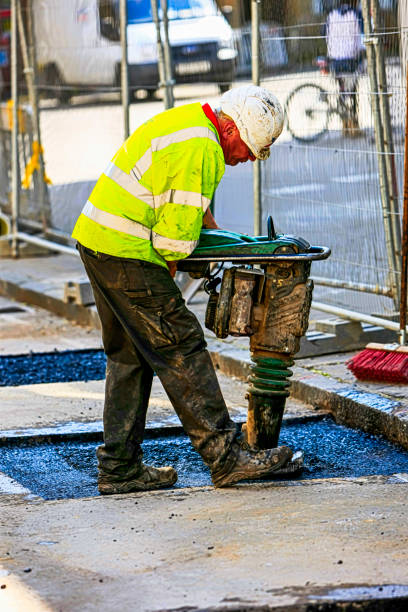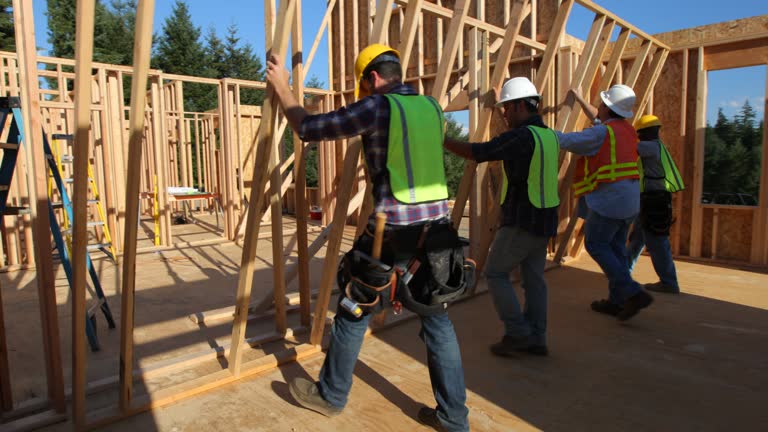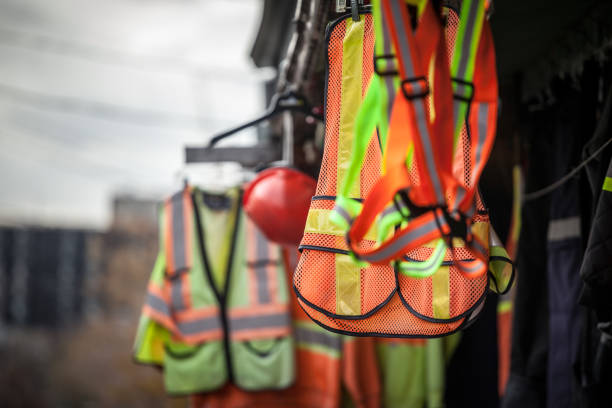Skilled Construction Jobs in New Germany: A Comprehensive Guide for Africans
Germany has long been known for its engineering excellence, architectural marvels, and efficient infrastructure. As the country continues to expand and modernize, the demand for skilled construction workers has reached unprecedented levels. For Africans looking to build a better future, New Germany presents a wealth of opportunities in the construction sector. In this article, we will explore the skilled construction jobs available, salary expectations, visa processes, and practical tips for a successful relocation.
1. Why Choose New Germany for Construction Jobs?
First and foremost, Germany’s booming economy consistently drives investment into infrastructure projects. From roadworks to residential high-rises and commercial buildings, there is always something being built. In New Germany and surrounding regions, labor shortages have led to an active recruitment of skilled foreign workers.
Moreover, the German government has implemented immigration reforms to attract qualified non-EU workers. Consequently, Africans with the right training and experience have a greater chance of securing high-paying jobs.
2. High-Demand Skilled Construction Jobs
Germany’s construction sector spans several sub-fields, and skilled workers are needed across the board. Below are the top positions in demand:
- Carpenters: In high demand for both rough and finish carpentry.
- Bricklayers and Masons: Required for residential and commercial development.
- Electricians: Essential for both new buildings and renovation projects.
- Plumbers: Needed to install and repair water and heating systems.
- Welders and Metal Workers: Crucial for infrastructure, including bridges and high-rises.
- Heavy Equipment Operators: Vital for road construction and large-scale developments.
- Roofers: Required for housing and commercial spaces.
- Painters and Decorators: Needed for finishing interiors and exteriors.
- Site Supervisors and Foremen: Experienced professionals needed to manage teams and projects.
- Civil Engineers and Construction Managers: Highly paid roles requiring technical education and experience.
3. Qualifications and Certifications
Although Germany values hands-on experience, formal qualifications increase your employability. Depending on the role, you may need:
- A vocational training certificate (apprenticeship) or relevant diploma
- A recognized trade certificate
- Experience of 2–5 years in a related construction job
- Basic German language proficiency (A2 or B1 level preferred)
If you don’t have formal training but have years of experience, you can apply for recognition of your foreign qualifications under the Anerkennungsgesetz (Recognition Act).
4. Salary Expectations
Skilled construction jobs in Germany are among the best-paying blue-collar roles in Europe. Here is an approximate salary range based on experience and location:
- Carpenters: €2,500 – €3,500/month
- Bricklayers: €2,800 – €4,000/month
- Electricians: €2,700 – €4,200/month
- Plumbers: €2,600 – €3,800/month
- Welders: €2,700 – €4,000/month
- Heavy Equipment Operators: €3,000 – €4,500/month
- Roofers: €2,500 – €3,700/month
- Site Supervisors/Foremen: €4,000 – €5,500/month
- Civil Engineers/Construction Managers: €5,000 – €7,000/month
Keep in mind that salaries in major cities like Munich or Berlin tend to be higher due to the cost of living.
READ ALSO: Top 15 Companies in the UK That Sponsor UK Work Visas
5. Work Visa and Immigration Process
Germany has made it easier for skilled non-EU workers to enter and work legally. Here’s a step-by-step breakdown:
Step 1: Job Offer You must first secure a job offer from a German employer.
Step 2: Recognition of Qualifications Submit your certificates and work experience for recognition through Germany’s official portal: www.anerkennung-in-deutschland.de
Step 3: Apply for a Work Visa With a recognized qualification and job offer, apply for the Skilled Worker Visa (Fachkräftevisa) at the nearest German Embassy.
Step 4: Prepare Documents Required documents include:
- Valid passport
- Employment contract
- Qualification recognition certificate
- Proof of accommodation
- Proof of language skills (A2/B1)
- Health insurance
Step 5: Attend the Interview Attend a visa interview and provide biometric data. If successful, you’ll receive your visa in a few weeks.
6. Life in Germany: What to Expect
Relocating to Germany offers not just job security but a high quality of life. Here’s what you can look forward to:
- Healthcare: World-class public healthcare system
- Education: Free or low-cost education for children
- Transportation: Efficient public transport network
- Safety: Low crime rates
- Multicultural Society: Increasingly welcoming to foreigners
However, adjusting to German culture may take time. Therefore, learning the language and understanding local customs will help you integrate faster.
7. Tips for Africans Planning to Work in Germany
To increase your chances of landing a skilled construction job, consider the following:
- Take Language Courses: A basic grasp of German significantly improves job prospects.
- Get Certified: Short vocational training or certificate programs boost your employability.
- Build a Resume in German Format: Tailor your CV to meet German hiring standards.
- Network Online: Use platforms like LinkedIn or Xing to connect with German employers.
- Consult a Visa Specialist: Immigration can be complex—professional help is advisable.
8. German Construction Companies Hiring Foreign Workers
Several companies in Germany are open to hiring skilled foreign workers. Examples include:
- HOCHTIEF – One of Germany’s largest construction companies.
- Bauer Group – Specializes in civil engineering and infrastructure.
- STRABAG – Operates across Europe and actively hires international talent.
- Zueblin – Known for sustainable construction.
- Bilfinger SE – Focuses on industrial construction.
These companies often post job vacancies on their websites or German job portals such as Make it in Germany, Indeed.de, and StepStone.de.
9. The Future of Construction in Germany
Looking ahead, Germany’s construction sector is set to grow further, thanks to:
- Urban renewal projects
- Increased demand for housing
- Green building initiatives
- Expansion of transport infrastructure
Consequently, skilled labor will continue to be in demand, making this an excellent time to pursue a construction career in New Germany.
Final Thoughts
In summary, Germany offers a promising future for skilled construction workers, especially from Africa. With competitive salaries, high living standards, and strong legal protections, the country remains an ideal destination for anyone seeking a better life. By preparing adequately—acquiring the necessary skills, learning the language, and navigating the visa process—you can successfully build your career in New Germany.
Take action today, and let your construction journey begin in one of Europe’s most dynamic economies!
Conclusion
Germany stands as a beacon of opportunity for skilled construction workers, particularly for Africans eager to pursue a stable and rewarding career abroad. The country’s ongoing infrastructure development, labor shortages, and inclusive immigration policies create a welcoming environment for qualified professionals. Whether you’re a carpenter, electrician, welder, or construction manager, your skills are in high demand.
By taking the right steps—such as acquiring recognized certifications, learning the German language, and securing a job offer—you can position yourself for long-term success in one of Europe’s most developed economies. Remember, preparation is key. The earlier you start, the sooner you’ll be laying the foundation for a brighter future.









